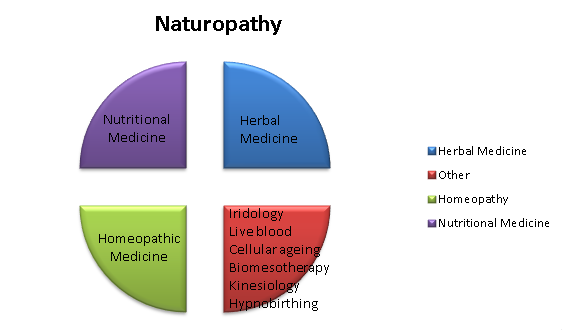Naturopathy evolved out of the ancient healing traditions of Europe, with its roots firmly grounded in early Greek medical philosophy. Naturopathy is increasingly being recognised by mainstream medicine as a valuable and effective system for treating a variety of disorders.
Naturopathy maintains that the body can heal itself if it is given the right circumstances and conditions. A range of treatments or therapies are used to stimulate the body’s own healing powers or ‘vital force’. Treatment may include nutritional medicine, dietetics, herbal medicine, homoeopathy, lifestyle advice and tactile therapies, such as massage, acupressure or Bowen technique.
Many of the foundations of naturopathy – such as the importance of diet, clean fresh water, sunlight, exercise and stress management – have been adopted by conventional medicine.
Naturopathy is guided by six foundation
principles, including:
- The healing power of nature

- First do no harm
- Find and treat the cause, not only the symptom
- Always treat the whole person, not only their disease
- Education
- Prevention
Early detection and prevention of health issues
Naturopathy has a strong focus on the prevention of health issues and the early detection of a person’s likelihood of developing a health disorder (predisposition). Naturopathy is also very effective at treating acute and chronic health issues.
Naturopathy aims to:
- Minimise symptoms
- Support the body’s vital force (its capacity to self-heal)
- Re-balance the system so that illness is less likely to occur in the future
- Educate the patient to look after their own health and the health of their family.
Commonly treated disorders
The range of disorders commonly treated by naturopaths includes:
- Fatigue
- Digestive complaints
- Mood disorders and depression
- Allergies and sensitivities
- Behavioural problems
- Chronic fatigue syndrome
- Musculoskeletal complaints such as arthritis
- Cardiovascular (heart and blood vessel) problems
- High blood pressure
- Fertility problems
- Endocrine disturbance
- Hormonal imbalances, such as premenstrual tension and menopause.
The importance of homeostasis
Your body regulates itself to maintain healthy limits. For example, body temperature needs to be kept constant. On a cold day, your body will conserve heat by constricting the blood vessels close to the skin and directing blood flow to favour internal organs. On a hot day, your body will dilate blood vessels close to the skin and evaporate body heat with perspiration. Many other elements – such as blood gases, hormones and water – also need to be kept within strict limits.
The process of maintaining this healthy internal balance is called homeostasis. Naturopaths believe that illness is more likely to occur if the body is not in a state of homeostasis.


